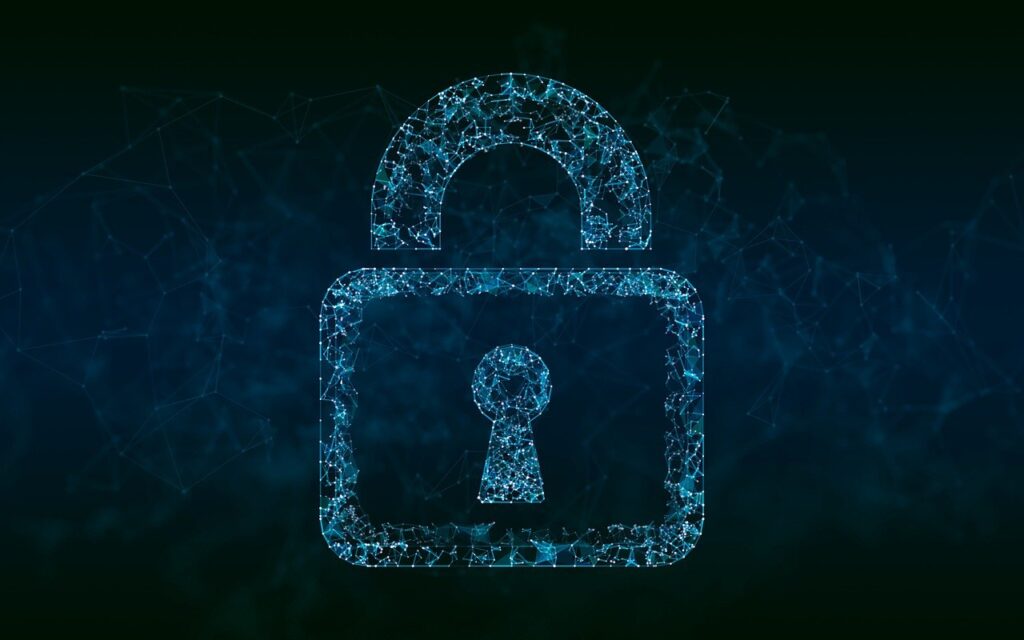Published on 05th August 2025
Authored By: Saloni Shikha
Chanakya National Law University, Patna
INTRODUCTION
India’s criminal justice system underwent a radical change on July 1, 2024, when Parliament planned to replace the old colonial-era enacted Indian Penal Code (IPC) with the Bharatiya Nyaya Sanhita (BNS) 2023. Concurrent with the BNS, the Bharatiya Nagarik Suraksha Sanhita (BNSS), 2023 and Bharatiya Sakshya Adhiniyam (BSA),2023, replaced the Code of Criminal Procedure (CrPC),1973 and the Indian Evidence Act (1872), respectively.
The 3 major criminal justice systems of India change with new amendments, making several changes in the system. The decision was taken due to the increasing seriousness of the crime and its impact on society. This was done with the aim to modernise, decolonise and streamline Indian’s old criminal justice framework. While the BNS, which forms the basis of substantive criminal law, BNSS oversees procedural matters and has a direct bearing on police operations.
This article will evaluate the BNS’s impact on police and procedural reform, focusing on new changes, comparative analysis with the IPC, key reforms taken in the police investigation process and challenges in implementation. By looking at these factors, we can determine whether BNS fulfils its promise of an efficient, fair and victim-centred justice system or it runs the risk of extending police authority without sufficient protection.
COMPARATIVE ANALYSIS BETWEEN IPC AND BNS
A major shift from the Indian Penal Code (IPC),1860, to the Bharatiya Nyaya Sanhita (BNS), 2023, updates India’s criminal justice system to meet modern issues, especially with regard to police processes and authority. The introduction of BNS brought changes to fill the loopholes present in the outdated, limited colonial-era IPC. The IPC has now, after nearly 150 years, been re-enacted with the stated objective of repealing colonial laws and “streamlining provisions relating to offences and penalties”,[1].
Below is the comparative analysis :
- Organised Framework:
IPC was written in an unstructured, archaic, complex language, containing 511 sections and 23 chapters, which makes it difficult to understand. On the other hand, BNS is made in a structured way and has been reduced by 358 sections, with 20 chapters made clear and more accessible in language. Earlier, under section 167 of the CrPC, Police were allowed to keep a suspect under custody for 15 consecutive days, with bail available after completion of half the imprisonment period for an offence. Section 187 of the BNSS gives police more flexibility, allowing custody up to 15 days, or it can be increased to 40-60 days depending on the nature of the offence.
- Introduced New Punishments:
For any crime, the IPC used only four types of penalties, such as capital punishment, imprisonment, fine and forfeiture of property. Under BNS, community service has been added for the petty offences[2], which reduces the burden on jails. It will provide a chance to the guilty people for time to repent. BNS also set the harsher penalties for sexual crimes such as the punishment for gang rape varied from life imprisonment to death penalties now under BNS minimum punishment is life imprisonment. The Death penalty is also applicable in cases of minors or the death of the victim.
- Cyberfraud provisions
In IPC, there were no provisions regarding cybercrimes, relying on the Information Technology Act,2000, for digital crime. Cybercrime is rising in the present time due to an increase in the existence or use of technology. There was no strict punishment for these crimes, but in the BNS, new provisions have been added for cybercrimes, crimes like online harassment, hacking or identity theft.[3] It recognised electronic and digital records as evidence, such as given under section 152.
SIGNIFICANT CHANGES BROUGHT IN BNS
From cracking down on cyber scams and organised crime to embracing digital evidence and community service, the BNS brings a slew of game-changing updates that promise to reshape how police fight crime and deliver justice.
- NEW OFFENCES
BNS introduced several changes compared to IPC, it retains most IPC offence but adds 20 new offences, including organised crime(section 111)[4], petty organised crime (section 112)[5], terrorism (section 113)[6], mob lynching (section 103(2)) as separate offence, environmental pollution and many more, previously covered under special laws like Unlawful activities (Prevention) Act,1967 (UAPA). These additions bring such offences under ordinary law, expanding police jurisdiction.
Snatching under section 304 of BNS and acts that jeopardise sovereignty through electronic communication (section 152) are examples of offences that demonstrate BNS’s emphasis on modern challenges such as cybercrime. Terms like ‘child’ and ‘woman’ are redefined to encourage inclusivity, especially in the section about sexual offences by introducing gender neutral language.
- REMOVAL OF SOME OFFENCE
BNS removed the colonial era provision of sedition given under section 124A of IPC, replacing it with section 152[7], which penalises activity that encourages hatred against India. Punishment also has been increased to 7 years along Fine. The BNS also omits Adultery (section 497) and section 377, which criminalised unnatural offences including consensual same-sex relations, provisions like section 309, attempted suicide, have also been removed.
Definitions and certain sections, such as section 18, definition of India, section 50, definition of section, are omitted as they are outdated and redundant. These omissions show a move towards a more modern and right criminal justice system, away from colonial legacies and antiquated penal provisions.
- VICTIM-CENTRIC PROVISIONS
With BNSS, BNS introduced several victim-centred measures aimed at improving the justice system’s accessibility, openness and empathy for the people who have been harmed. By making sure their voices are being heard and their cases are treated with care, these improvements seek to empower victims of theft, women experiencing harassment or survivors of any heinous crimes.
Provisions such as community service as a punishment for petty offences under section 4(f), mandatory victim compensation, which ensures financial redressal under section 545 of the BNS, or the zero FIR provision allow complaints to be filed at any police station, improving access to justice.
KEY REFORMS TAKEN IN THE POLICE INVESTIGATION PROCESS
BNS, in coordination with BNSS, introduced several changes that reshape the police investigation process, such as:
- Filing of FIR – The police can register an FIR at any police station, regardless of the location of the offence, unlike IPC and CrPC, which were jurisdiction-based. The FIR must be recorded using the prescribed integrated investigation form and signed by the investigation officer.
- Timeline for investigation- For the offence punishable for 10 years or more, life imprisonment or a death sentence, the timeline for the investigation is 90 days, and in case the punishment is less than 10 years, the charge sheet must be filed within 60 days.[8]
- Evidence Collection and Recording of statement- Section 180 of BNS allows police to record witness statements, which will not be admissible as evidence but will assist the investigation. A statement can be recorded via audio-video electronic means at the discretion of the police under section 180(3), and confessions or statements made before a magistrate are recorded under section 183 of the BNS.
- Mandatory Forensic Investigation- Crimes which are punishable with 7 years or more, BNSS require that forensic experts be involved and the crime scenes be recorded on audio and video. It will increase the reliability of the evidence and is a necessary major improvement in forensic infrastructure and training.
- Electronic evidence and Trial- BNS recognises digital records like WhatsApp chats or CCTV footage as legitimate evidence. BNSS provision allowing police to seize digital devices like laptops and phones, and conduct a trial online. This is a Big Leap from paper-based files and a shift towards tech-driven methods.
- Victim-Centric Measures- The BNSS introduces strict timelines, including the requirement to file charge sheets within 90 days, with the option to extend by an additional 90 days and to deliver judgment within 30 days following hearings. The Zero FIR provision and mandatory audio-video recording for sexual violence cases streamline investigation and prioritise victim access.
CHALLENGES IN IMPLEMENTATION
Though the BNS,2023, presents a positive image of contemporary policing, bringing this vision to life is like climbing a mountain with little equipment for India’s overburdened police forces.
- Not enough resources- Forensic infrastructures are limited, particularly in rural areas. Electronic trials and digital evidence collection require a robust IT infrastructure, which is not available across India’s police stations.
- Risk of misuse of power- Longer custody period up to 90 days raises concerns about an increased chance of police misconduct, including torture, abuse of power and provisions like section 152 threaten to give police a lot of leeway. Critics argue that this could lead to draconian practices reminiscent of colonial-era laws.
- Overlap with the existing laws and enforcement confusion- The co-existence of provisions related to terrorism in both BNS and UAPA without clear differentiation may cause confusion and inconsistent enforcement by law enforcement agencies.
- Vaguely defined definitions- Certain provisions, such as acts related to compromising the sovereignty, unity, and integrity of India, lack precise definitions. This vagueness risks arbitrary or discriminatory application, potentially targeting specific groups and threatening civil liberties.
While the BNS aims to modernise and streamline India’s criminal justice system, its success depends on addressing infrastructural deficits, clarifying and ambiguous provisions, ensuring adequate training and fostering greater public and institutional awareness to prevent misuse and ensure fair application.
CONCLUSION
BNS, 2023 is a tremulous shift for India’s criminal justice system, arming police with modern tools to tackle everything from cyber scam to organised crime while putting the victim at the centre of the process. With its leaner structure, digital-friendly evidence rules, and victim-centric measures like Zero FIR and mandatory recordings, the BNS empowers law enforcement to deliver faster and fairer justice in a rapidly changing world. For police, the real challenges lie in bridging the gap between ambition and reality, such as training officers, equipping stations and building public trust, which are non-negotiable. If India backs its police with resources, the BNS could transform law enforcement into a beacon of justice, ensuring safety and fairness for all. But without that support, these reforms risk stalling, leaving both police and citizens caught in the crossfire of good intentions and tough realities.
BNS, alongside BNSS, marks a bold step towards modernising India’s criminal Justice system. By mandating forensic and digital evidence, protecting victims and imposing stricter police accountability it has the potential to reduce delays and improve fairness.
REFERENCES
[1] Vijayendra Pratap Singh, Shubhangani Jain, ‘Overview of Bharatiya Nyaya Sanhita ,2023 (Penal Code), (Jun. 11, 2025, 2:30 PM)
https://www.azbpartners.com/bank/overview-of-the-bharatiya-nyaya-sanhita-2023-penal-code/#_ftnref3.
[2] Community service under the BNS: Progress, Pitfalls, and Potential, nliulawreview.nliu.ac.in ( Jun. 9, 2025, 10:00 AM),
[3] Sharmin Kapadia, Priyam Sharma, “Unorganized” crime under the Bhartiya Nyaya Sanhita, 2023, ( Jun. 7,2025, 5:25 PM),
https://www.barandbench.com/columns/unorganized-crime-under-the-bhartiya-nyaya-sanhita-2023.
[4] Bharatiya Nyaya Sanhita 2023, s 111
[5] Bharatiya Nyaya Sanhita 2023, s112
[6] Bharatiya Nyaya Sanhita 2023, s113
[7] Bharatiya Nyaya Sanhita 2023, s152
[8] Pushkraj Deshpande, Yohaan Abraham, ‘Overview of Criminal Investigations and Trials under BNSS, BNS, BSA – Part I’, Barandbench.com (Jun. 25, 2024, 1:00 PM) https://www.barandbench.com/view-point/overview-criminal-investigations-trials-bnss-bns-bsa-part-i.




